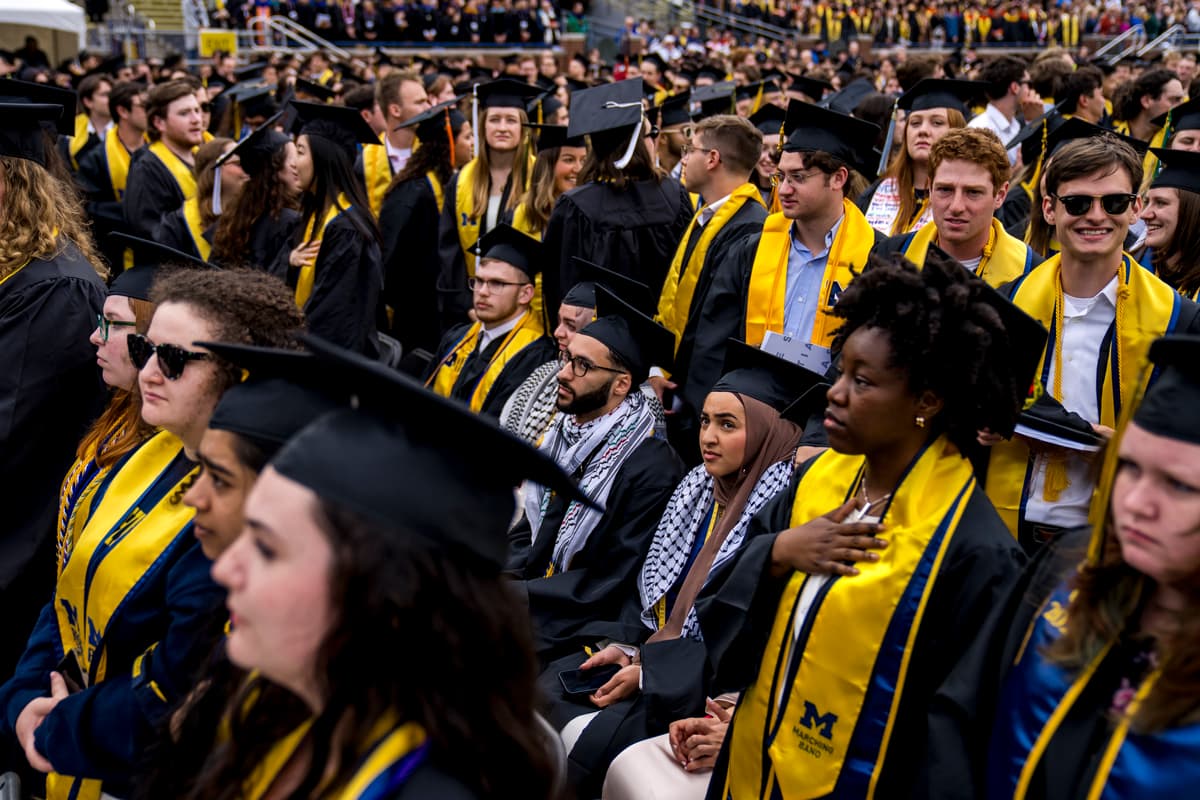With Academic Freedom on College Campuses Today Worse Than in McCarthy Era, Universities Build Institutes for Civil Discourse To Turn the Tide
The University of Michigan announced Monday its plans to create an independent institute ‘to strengthen debate and dialogue.’

As the inauguration of President Trump, who pledges to make higher education “great again,” inches closer, and academic freedom on college campuses continues to hang in the balance, some universities are hoping to turn their campus climate around by opening institutions focused on civil discourse.
The University of Michigan is the latest school to hop on the trend, having announced, on Monday, its plans to create what it calls a Institute for Civil Discourse “to strengthen debate and dialog across the vast spectrum of ideologies and political perspectives on campus and beyond.”
The university’s president, Santa Ono, while discussing the new center, described civil discourse as “the very best way to learn and to solve problems” and “fundamental to our democracy.” The center, which will stand independent from any one of the university’s schools, will be supported by an advisory board of academic leaders “representing a broad range of ideological viewpoints.”
An organization which partners with universities to promote academic freedom, the American Council of Trustees and Alumni, welcomes the development as a step in the right direction. One fellow, Steve McGuire, describes these kinds of institutions as “great” because “they’re adding something to the university, not taking something away,” he tells the Sun. “They create a relatively autonomous unit on campus that is responsible for promoting free expression and civil dialogue for everybody from a variety of perspectives.” He adds: “Who can object to that?”
The Ann Arbor university follows in the footsteps of Ohio State University and the University of North Carolina Chapel Hill, both of which created civil discourse organizations this year. Schools like the University of Tennessee, the New College of Florida, the University of Texas at Austin, Arizona State University, made similar moves in years prior.
The effort to improve civil discourse comes as sentiment regarding freedom of thought at university campuses has waned dramatically. According to a recent faculty survey from a pro-free speech non-profit, the Foundation for Individual Rights and Expression, college campuses are rife with “self-censorship, worry, and fear.”
Their survey, which was issued to tenured and non-tenured faculty across 55 American four-year colleges and universities, found that 35 percent of faculty reported that they “recently toned down their writing for fear of controversy.” Compare that to the 9 percent of faculty who said the same during the McCarthy era.
A fellow at the American Enterprise Institute, Samuel Abrams, who has taught at Sarah Lawrence College for over 15 years, took the survey as an indication that “intellectual life today on campus is worse than the McCarthy era.” He claims, in an article he published this week in AEI, that higher education is “in a full state of crisis.”
The University of Michigan has, in the past year, been working to remedy this issue. Just a few weeks ago, the school’s Board of Regents elected to bar the solicitation of diversity statements in its faculty hiring, promotion, and tenure process. The move, which was hailed by one education expert as a “watershed moment,” made the Ann Arbor school among the first highly selective public universities to backpedal on its DEI initiatives via internal decision making, and not legislative enforcement.
Back in October, the school announced that it would do away with issuing institutional statements on political and social issues that are not directly related to the school, adopting a policy known as “institutional neutrality.” And nearly a year ago, in January, the school issued a list of principles on diversity of thought and freedom of expression to affirm the school’s commitment to free speech.
It’s a remarkable shift for the university which, for the past decade, has positioned itself at the vanguard of the diversity, equity, and inclusion movement, spending since 2016 nearly a quarter of a billion dollars to achieve “far-reaching foundational change at every level, in every unit” in the ways of inclusivity.
Meanwhile, other universities are reconsidering their approaches to academic freedom in the face of external pressure — namely the coming Trump administration, which has promised to take higher education’s problems head on. Harvard University’s president, Alan Garber, reportedly acknowledged during a private meeting with faculty that the school should listen to public criticism with “empathy and humility,” sources told the Crimson last week. The school newspaper inferred that Mr. Garber’s “conciliatory tone” suggested that he “intends to take a diplomatic approach — rather than a defiant one — as he interacts with an incoming presidential administration that has Harvard in its crosshairs.”
Down in New York City, Columbia University’s administration is facing pressure from a group of faculty, staff, students, and alumni, known as Stand Columbia Society, who are warning that the Ivy League school could lose out on $3.5 billion in federal funding — 55 percent of the school’s annual operating budget — should they face government retaliation for violating anti-discrimination laws. They’ve urged the university not to play “chicken” in the face of such significant financial risk.
The looming Trump presidency aside, Mr. McGuire predicts that the news that Michigan and other schools are building institutes dedicated to civil discourse may have “a domino effect” on colleges across the country and inspire them to embrace similar initiatives.
“It adds more credence to the idea that these things should exist,” Mr. McGuire tells the Sun. “The University of Michigan is putting their money where their mouth is and trying to do something here. Hopefully other institutions see this and realize that they should be doing it too.”

